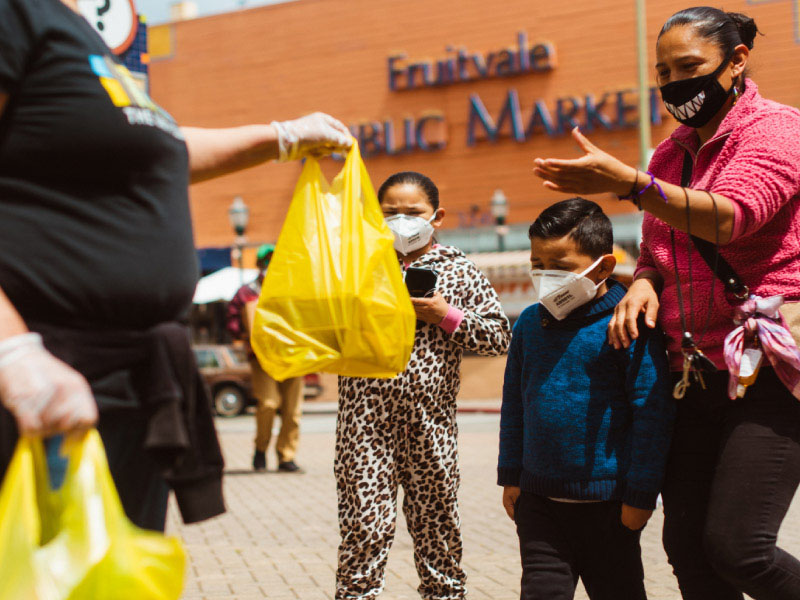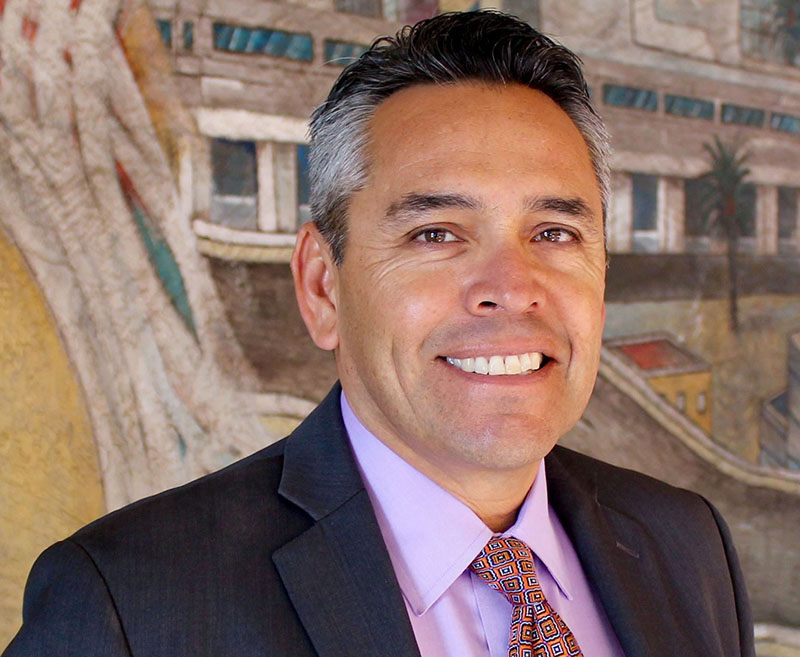The Unity Council helps keep roofs over residents' heads
By Diane Daniel, American Heart Association News

When Zilpa Naomi Lopez walked into the office of The Unity Council in Oakland, California, she couldn't believe her ears. Not only were staff members immediately addressing her in her native Spanish, she even heard some employees speaking Mam, the Mayan language her mother had spoken in her native Guatemala.
Lopez said she felt immediately welcomed and safe, something she hadn't always experienced in her adopted country.
The 34-year-old mother of three had been referred to the nonprofit for help with rent and other services after she lost her job because of the COVID-19 pandemic. She had given birth to her third son in May and planned to return to her custodial job at the Oakland Coliseum, but all events had stopped. Her partner is a day laborer with an unpredictable income.
"It's very stressful to not have a regular income, because our rent is $1,300 a month, without electricity," she said through a translator.
Lopez shares a studio apartment with her two older sons, 8 and 6, her partner and their baby. She moved to Oakland four years ago in search of better economic opportunities and to flee a violent relationship, she said.
In the Fruitvale neighborhood, where The Unity Council is located, more than 1 in 4 residents live below the poverty line, according to U.S. Census Bureau data. That's more than double the rate in the surrounding San Francisco-Oakland-Hayward area. Nearly half the residents speak a language other than English at home, and just over half have a high school education or less. Low levels of education, high poverty rates, and language barriers are key social determinants of health.
Meanwhile, living in Fruitvale and the surrounding city of Oakdale is expensive. Median rents rose by 69% from 2009 to 2017, according to federal Housing and Urban Development data. Fruitvale and bordering neighborhoods also have been hit hard by COVID cases.
"We used to focus on home ownership, but now it's housing stability because of rising rents," said Unity Council's CEO Chris Iglesias. "We see it with our clients and our staff. We were already in crisis mode, and then came the pandemic."

Each year, the organization's services and programs reach more than 8,000 people and families, in five languages. The programs include early childhood education, youth mentorship, employment services, career readiness, senior citizen services, and affordable housing and neighborhood development.
Over the past 55 years it has invested more than $100 million in community assets, including affordable housing and community developments like the Fruitvale Transit Village, a nationally lauded project that uses space for office, retail and residential tenants.
When Lopez needed help, the council's Housing and Financial Access program gave immediate assistance.
It provides emergency displacement prevention services and coaching services to help clients find affordable housing and learn financial skills. The Unity Council recently received a grant for the program through the American Heart Association's Bernard J. Tyson Impact Fund.
As for Lopez, either directly though The Unity Council or partner organizations, she was able to receive emergency funds for rent and utilities, go to weekly free food distributions, receive a grocery debit card and enroll in an early-childhood program. Lopez also learned about her rights as a renter, attends online workshops and meets with a Unity Council coach on a regular basis to learn about hunting for affordable housing and managing finances.
"My coach taught me a lot, like how to think about if something is needed or if it's a 'want,' and to not spend money as soon as it comes in," she said.
Lopez already is passing along what she's learned. She recently got her older sons their first piggy bank.
If you have questions or comments about this story, please email [email protected].





